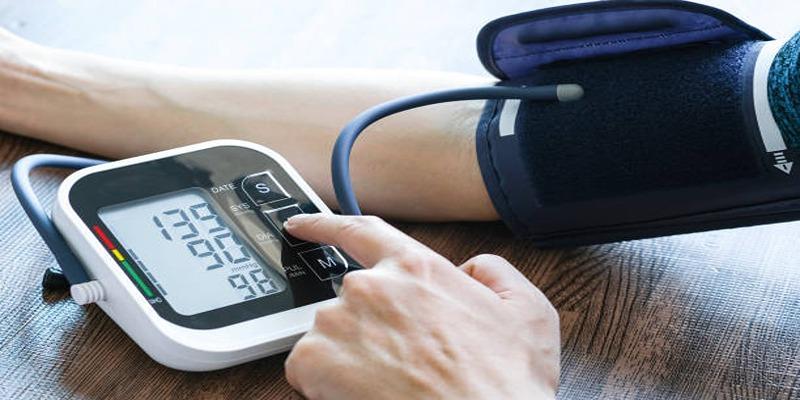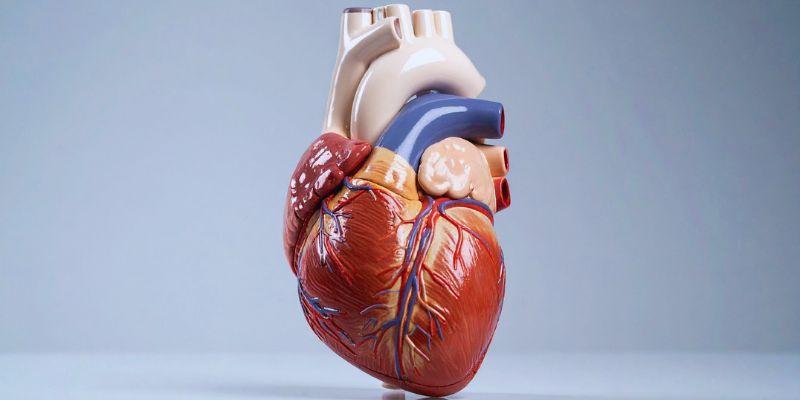Almost half of all adults in the U.S. have high blood pressure, also known as the silent killer because it is asymptomatic, yet causes harm to the heart. The positive news? Hypertension is treatable You can fully control your blood pressure and take care of your health with the help of the proper lifestyle changes and information. The gradual steps can matter a lot.

Blood pressure is recorded in the format of two numbers: one is systolic blood pressure (the first), and another is diastolic blood pressure (the second). Systolic pressure is how forceful your heart will be as the heart pumps, diastolic pressure is the how powerful the heart is when it rests between the pumping action.
A normal blood pressure is a blood pressure that is below 120/ 80 milligrams of Mercury. Hypertension can be characterized by blood pressure of 130/80 mmHg and above. 120-129 in systolic and below 80 in diastolic will fall under elevated blood pressure and indicate that you have a risk of acquiring hypertension.
Even minimal rises in the blood pressure level can influence the health greatly. A modest increase in systolic blood pressure of 20 mmHg or diastolic blood pressure of 10 mmHg increases a person risk of heart disease and stroke by 2 times.
When performed on a regular basis, it helps one get the patterns and be able to notice the changes quickly. Outpatient blood pressure monitors are relatively inexpensive, and can help you and your doctor obtain useful information.
The way you eat can have a direct effect on your blood pressure, and usually, a bigger one than individuals imagine. The DASH or Dietary Approaches to Stop Hypertension regimen has been scientifically confirmed to reduce blood pressure in a few weeks.
It is important to reduce sodium consumption because most Americans take twice the recommended amount of sodium. Limit 2,300 mg or less per day, or better yet, 1,500 mg per day in the event of high blood pressure. Adding more foods containing potassium such as bananas, spinach, avocados and beans should offset the effect that sodium has on blood pressure.
The other easy measure to help the heart is to turn to whole grains, i.e., whole wheat bread, brown rice, and oatmeal. Furthermore, heavily loading on fruit and vegetables, striving to get 4-5 servings of each per day, supplies necessary nutrients such as magnesium and fiber that reduce blood pressure.
Exercise improves the strength of your heart making it having to work less hard because the blood is pumped with ease. This lowered the amount of work and that reflected in the low blood pressure readings
You do not have to match gym time with heat in order to benefit. In hypertensive people, moderate exercise between 30- and 90-minutes on most days of the week can reduce both systolic blood pressure by 4-9 mmHg- which is similar to some blood pressure medications.
The most important concept is regularity as opposed to vigor Consistent exercise that is moderate in intensity is more beneficial in the long-term sense than occasional strenuous exercise.
Chronic stress is one of the causes of high blood pressure due to several means. When pressure is put, your body releases some hormones that cause an increase in the blood pressure. In the long run people under stress may develop behaviors which will exacerbate high blood pressure, they eat poorly, exercise less and sleep less.
Understanding the causes of your stress enables you to learn specific solutions to stress Writing in a journal helps some people, and distraction is useful to others, whether through a hobby they are interested in, or through friends.
When lifestyle changes are insufficient to reduce your blood pressure to a healthy range, medication plays a key role. Antihypertensive medicines exert their effects in various ways- some cause the dilation of the blood vessels, some decrease fluid quantity, and others lower heart rates.
Treatment of blood pressure medicine has its difficulties, which can be overcome in an effective way. Side effects may arise, so discuss with your doctor the medications that cause the fewest side effects. In order to address the issue of cost, generic forms of most blood pressure medicines exist and are equally high in efficacy. Memory loss can be addressed by employing the use of pill organizers or Smartphone reminders in order to establish some degree of continuity.
Also, it should be kept in mind that the state of feeling good does not give the right to stop taking the medication, as blood pressure needs constant monitoring.

The quality and length of sleep are important, as poor sleep quality and lesser sleep duration also have a negative correlation with blood pressure. It is how your blood pressure goes down when you are asleep. Individuals who generally sleep less than 6 hours are at the risk of developing hypertension.
Sleep apnea, a disease whereby breathing is disrupted in the form of stops and starts reoccurring during sleep, is especially a major issue in maintaining control of blood pressure. The regular oxygen drops, disturbed sleeping and so on are able to produce very high blood pressure.
A regular sleep schedule of going to bed and waking up at the same time every day is important in getting better sleep. Another change that can help is to make the environment conducive to sleep, i. e. your bedroom should be dark and quiet, and cool.
One more necessary measure is to restrict screen time not to use phones, tablets, or watch TV at least an hour before going to bed. Finally, in the event that you snore loudly or are feeling fatigued despite sleeping well, it is time to discuss with your physician the need to screen you against sleep apnea.
Effectively controlling high blood pressure depends upon a complex treatment plan, yet it is not necessary to turn your whole life completely upside-down immediately. Making small changes over a period of time is generally more sustainable and successful as facing a grand change.
Make one or two changes at a time and generate momentum. Start with a 10-minute daily walk and decrease the amount of salt you put in food. Once this is the habit, combine it with a different new behavior such as stress reduction tips or more proper sleep hygiene.
Keeping a blood pressure log will help track your progress by recording readings as well as activities, meals and how you feel. This knowledge assists you and your medical professional to define the best option that suits your case.
Maintaining the high blood pressure is an essential element to your long-lasting health. Concentrating on your numbers, nutrition, movement, stress management, and prioritizing sleep. You need to develop a blood pressure management plan with your health professional and this takes time. Start small, be consistent and watch your heart to enjoy a healthier future.
 TOP
TOP
If you still believe that women don’t get heart diseases or that only older people can have heart diseases, you are wrong
 TOP
TOP
How building wealth is possible at any age with practical strategies that focus on consistent habits, smart choices, and long-term thinking
 TOP
TOP
Start making the most of your 401(k) today and secure a stronger financial future. Learn how timing, employer matches, and smart contributions can improve your retirement
 TOP
TOP
How financial aid for college works—from grants and scholarships to loans and work-study programs. Get clear, practical guidance for every funding option
 TOP
TOP
Discover 5 unique horse races that take place around the world, blending speed, thrill, and stunning cultural locations.
 TOP
TOP
Discover how Easter is celebrated across countries, from egg rolling to water fights, offering joy through local traditions.
 TOP
TOP
Explore North Wales’ most breathtaking gardens, from serene floral paths to hillside greenery with sea views.
 TOP
TOP
Wondering if it’s the right time for a loan? Learn how rates, timing, and your finances impact the decision.
 TOP
TOP
Discover the top reasons to pay credit card bills on time and how it safeguards your credit, money, and peace of mind.
 TOP
TOP
Uncover the best experiences in Rome, Italy, with this essential guide. Walk through ancient ruins, explore piazzas, visit historic churches, and get to know the Eternal City at your own pace
 TOP
TOP
Discover the best places to stay in Nashville, from lively downtown hotels to charming neighborhood rentals. Explore top areas suited for music lovers, families, and anyone seeking the perfect Nashville experience
 TOP
TOP
Thinking about a lease buyout? Learn how to evaluate your options, compare costs, and decide whether keeping your vehicle is the right move. Understand the financial side before making your next step